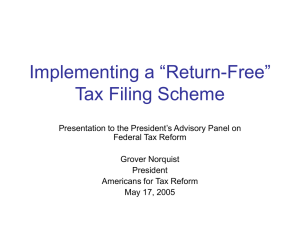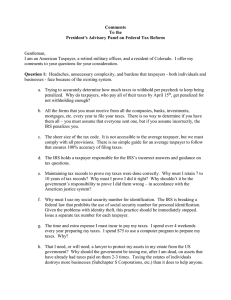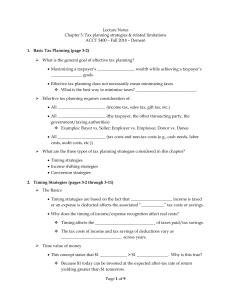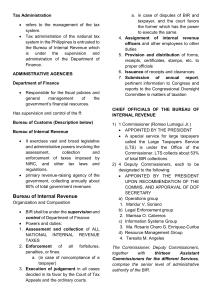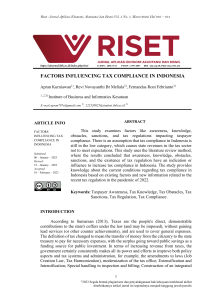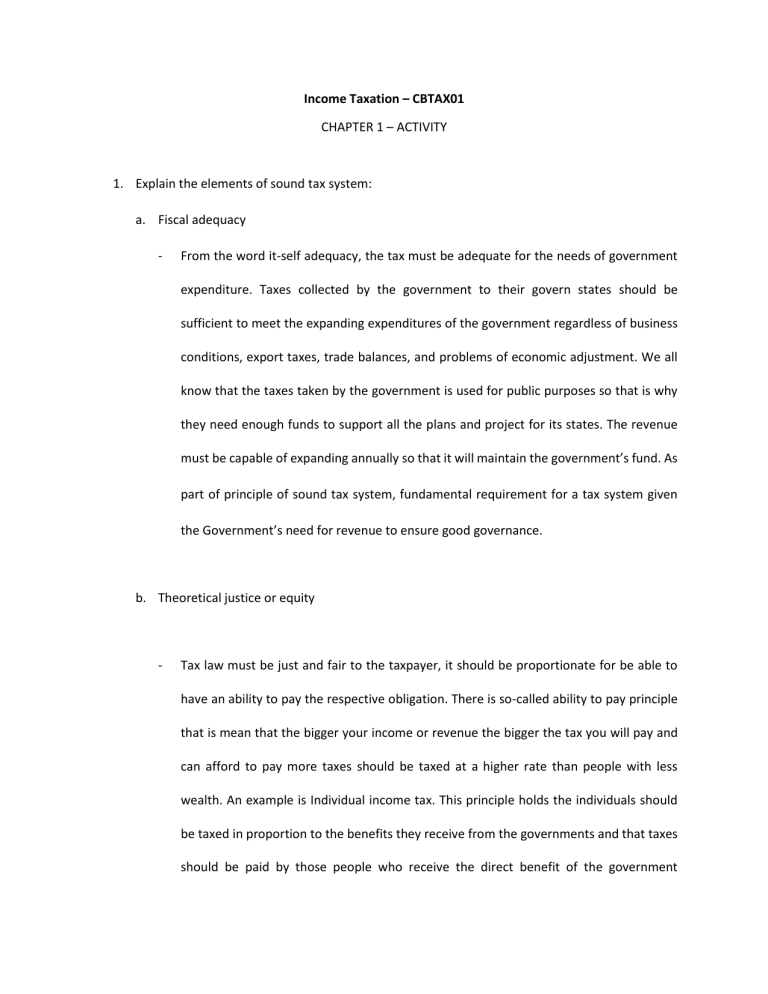
Income Taxation – CBTAX01 CHAPTER 1 – ACTIVITY 1. Explain the elements of sound tax system: a. Fiscal adequacy - From the word it-self adequacy, the tax must be adequate for the needs of government expenditure. Taxes collected by the government to their govern states should be sufficient to meet the expanding expenditures of the government regardless of business conditions, export taxes, trade balances, and problems of economic adjustment. We all know that the taxes taken by the government is used for public purposes so that is why they need enough funds to support all the plans and project for its states. The revenue must be capable of expanding annually so that it will maintain the government’s fund. As part of principle of sound tax system, fundamental requirement for a tax system given the Government’s need for revenue to ensure good governance. b. Theoretical justice or equity - Tax law must be just and fair to the taxpayer, it should be proportionate for be able to have an ability to pay the respective obligation. There is so-called ability to pay principle that is mean that the bigger your income or revenue the bigger the tax you will pay and can afford to pay more taxes should be taxed at a higher rate than people with less wealth. An example is Individual income tax. This principle holds the individuals should be taxed in proportion to the benefits they receive from the governments and that taxes should be paid by those people who receive the direct benefit of the government programs and projects out of the taxes paid. This principle states that income, wealth, and transaction should be taxed at a fixed percentage; that is, people who earn more and buy more should pay more taxes, but will not pay a higher rate of taxes. c. Administrative feasibility - In administrative feasibility, tax law should be capable of convenient, just and effective administrative. Tax should be capable of the following: first uniform enforcement by government officials, so tax law must be applicable to all, it should not be made selective for a group of people, and it should be made uniform. Next is convenient as to the time, place and manner of payment, especially nowadays where everything is convenient, we can pay taxes online wherever we are as long as we have internet. Lastly is not unduly burdensome upon, or discouraging to business activity, we can clearly see that the percentage of the tax collected by the government to us and some business is not that big to make us burden. To sum it up, Administrative feasibility assures us that the tax system should be as simple as possible, clear, concise and capable of enforcement and convenient as to time and manner of how taxes are assessed, collected and complied with. 2. What do you mean by Taxpayer’s suit? Give examples - It is an action of the nature of a class representative suit filed to secure relief on actions of public officers or officials involving the disposal of public funds adversely affecting the common interest of a class of taxpayers or taxpayers in general within the jurisdiction of a taxing authority. The general rule is that the validity of statute will be contested only by one who will sustain a direct injury as a result of the enforcement of the law. This requirement of direct injury is no longer required or sufficient for purposes of filing a taxpayer’s suit. Taxpayers have been held to have sufficient interest in preventing the illegal expenditure of money raised by taxation. Personal damage or injury is not necessary but public interest. When public interest is involved, then you have a legal standing for filing a taxpayer’s suit. For example, If the taxpayer notice the government is using their money from their personal needs then they can sue them since sovereign states grant them to the right to sue anyone in government if they have the proof that the tax funds has been wrongfully spent.
